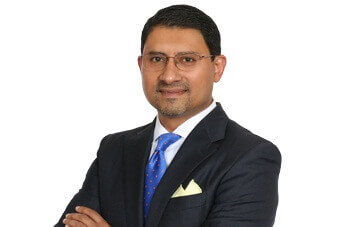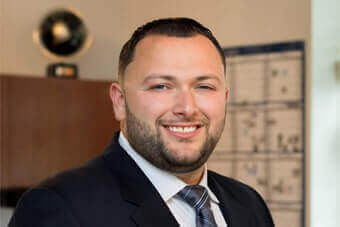Virginia Appeals To Lawyer
If a criminal case results in a result not up to your expectations, you do not have to accept a bad outcome.
In fact, there are a number of specific procedures and guidelines to assist individuals in this very situation.
A Virginia Criminal Lawyer can give you legal advice on whether you can apply to a higher court for a reversal of the decision of a lower court. The outcome of your criminal proceedings and represent you during the appeal process.
Call today and make an appointment with a criminal defense lawyer in Virginia to find out more.
Criminal charges in Virginia - If you can appeal in Virginia:
After an unsatisfactory case, many Virginia clients make the decision to applyto a higher court for a reversal of the decision of a lower court.
Basically, an appeal means that you ask a higher court to overturn the lower court's ruling. If an application to a Virginia higher court for a reversal is filed, the court may either return the case for re-trial, confirm the decision taken, or reverse the outcome of the case.
Before applying to a Virginia higher court for a reversal of the decision of a lower court. Your lawyer must ensure that the records are kept during the process to ensure that a complaint is possible later.
Here are some of the possible charges you can apply to a Virginia higher court for a reversal of the decision of a lower court. You can make:
- Convictions for assault
- Drug Appeals
- DWI complaints
- Convictions for sex crimes
Reasons for filing a complaint:
There are many different reasons for applying to a Virginia higher court to reverse the decision of a lower tribunal - from an argument that the jury's false instructions were given for an allegation that you considered ineffective in your first criminal case.
However, in order for you to successfully appeal, there must have been a problem, mistake, or legal mistake during the previous process.
A Virginia higher court not only replaces the judgments made by the jury with its own considerations or factual decisions, but the Court of Appeals takes action on certain bad decisions that have been proven to affect your case.
Applying to a Virginia higher court to reverse a lower tribunal's decision is very complicated because you must identify all the specific technical issues that have arisen in your case in court, and you must provide convincing and convincing arguments as to why a higher ct. should act.
You need to speak with a lawyer in Virginia who has experience with applying to a Virginia higher court to reverse the decision of a lower Virginia tribunal in your jurisdiction if you want to maximize your chances of success in this legal process.
What is involved in raising a case in Virginia? If you believe you have grounds to apply to a Virginia higher ct. for a reversal of a lower tribunal's decision, then you must file an appeal.
You only have a limited amount of time to appeal against a decision. Therefore, it is important to act quickly. The decision on your case will be taken on the basis of the appealprocedure submitted to the court and on the basis of information contained in a lawsuit filed by your Virginia lawyer.
Unlike in your first case, no witnesses or evidence are presented-the full strength of your case depends on the arguments of your Virginia lawyer and the law you are providing in support of those arguments. The Virginia Court of Appeals hears complaints from the Circuit Courts.
If you decide to appeal against a decision by the Virginia Circuit Courts, it helps to understand what the process looks like and how you should proceed. The court reviews your appeal and any appeals filed by the government.
If your lawyer in Virginia decides to file a written response to the government's appeal, the matter will be referred to a judge of the court who decides whether to file the opposition or not.
If there is no written answer, the matter will be heard orally before this judge. If the judge refuses the appeal, your Virginia lawyer may request that a "written jury" of three judges review the decision.
If one of these three Virginia judges agrees to the appeal, the appeal will be granted. If all three judges of the higher court agree to refuse the appeal, the opposition will be rejected.
If the Virginia judge or the panel of arbitrators agrees to the appeal, it will be referred to a panel of three judges of the court to which both parties will address their written submissions.
Verbal argument can be requested, but is not required. If you are still not satisfied with the outcome of the appeal, you can appeal again to the Virginia Supreme Court.
However, since the Virginia Supreme Court treats only a limited number of cases, there is no guarantee that you will have the opportunity to reverse a decision that you believe is wrong. Reach Us for help with your complaint.
There is a lot at stake if you file a petition for an appeal against your judgment. In a situation where speed and accuracy are extremely important, it is critical to work with an experienced local lawyer who really understands the Virginia appeals process.
Someone with experience in remedies available to a client offers added value to your application process to a higher ct. The Virginia lawyer can provide much needed information about the process and explain to a client what certain terms like de novo mean.
If you encounter problems in your appellate process, it may be helpful to have an experienced and knowledgeable lawyer by your side to master the complexity of the process. In your jurisdiction if you want to maximize your chances of success in this legal process.
What is involved in raising a case in Virginia?
If you believe you have grounds to apply to a higher ct. for a reversal of a decision of a lower ct., you must file anappeal.
You only have a limited amount of time to apply to a higher ct. to overturn the decision of a lower tribunal.
Therefore, it is important to act quickly. The decision on your case will be taken on the basis of the application to the higher ct. to reverse the decision of of a lower ct, on the procedure posture of the case submitted to the court and on the basis of information contained in a lawsuit filed by your lawyer.
Unlike in your first case, no witnesses or evidence are presented-the full strength of your case depends on the arguments of your lawyer and the law you are providing in support of those arguments.
The Virginia Court of Appeals hears complaints from the Circuit Courts. If you decide to apply to a higher ct. to reverse a decision by the Circuit Courts, it helps to understand what the process looks like and how you should proceed.
The court reviews your appeal and any appeals filed by the government.
If your lawyer in Virginia decides to file a written response to the government's appeal, the matter will be referred to a judge of the court who decides whether to file the opposition or not.
If there is no written answer, the matter will be heard orally before this judge. If the judge refuses the appeal, your lawyer may request that a "written jury" of three judges review the decision.
If one of these three judges agrees to the appeal, the appeal will be granted. If all three judges of the Examination Board agree to refuse the appeal, the opposition will be rejected. If the judge or the panel of arbitrators agrees to the appeal, it will be referred to a panel of three judges of the court to which both parties will address their written submissions.
Verbal argument can be requested, but is not required. If you are still not satisfied with the outcome of the appeal, you can appeal again to the Virginia Supreme Court. However, since the Supreme Court treats only a limited number of cases, there is no guarantee that you will have the opportunity to reverse a decision that you believe is wrong. Reach Us for help with your complaint.
There is a lot at stake if you file a petition to a higher ct. to reverse the ruling of a lower tribunal's judgment against you. In a situation where speed and accuracy are extremely important, it is critical to work with an experienced local lawyer who really understands the Virginia appeals process.
Someone with experience in remedies available to a client offers added value to your application to a higher CT to reverse the ruling of a lower tribunal.
The Virginia lawyer can provide much needed information about the process and explain to a client what certain terms like de novo mean. If you encounter problems in your appellate process, it may be helpful to have an experienced and knowledgeable lawyer by your side to master the complexity of the process.







